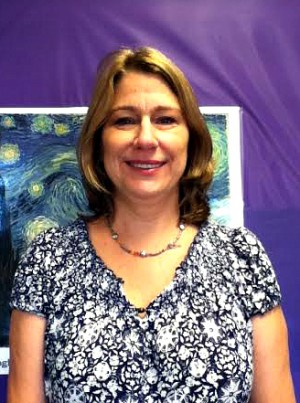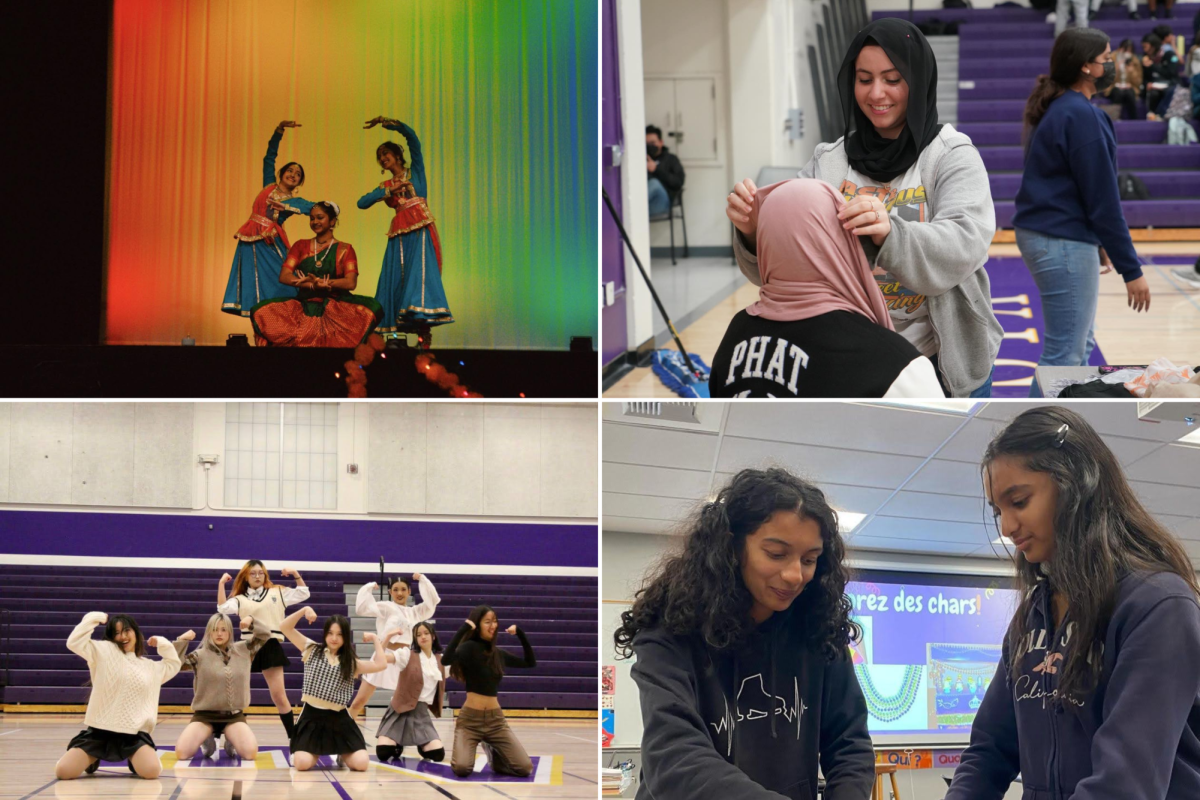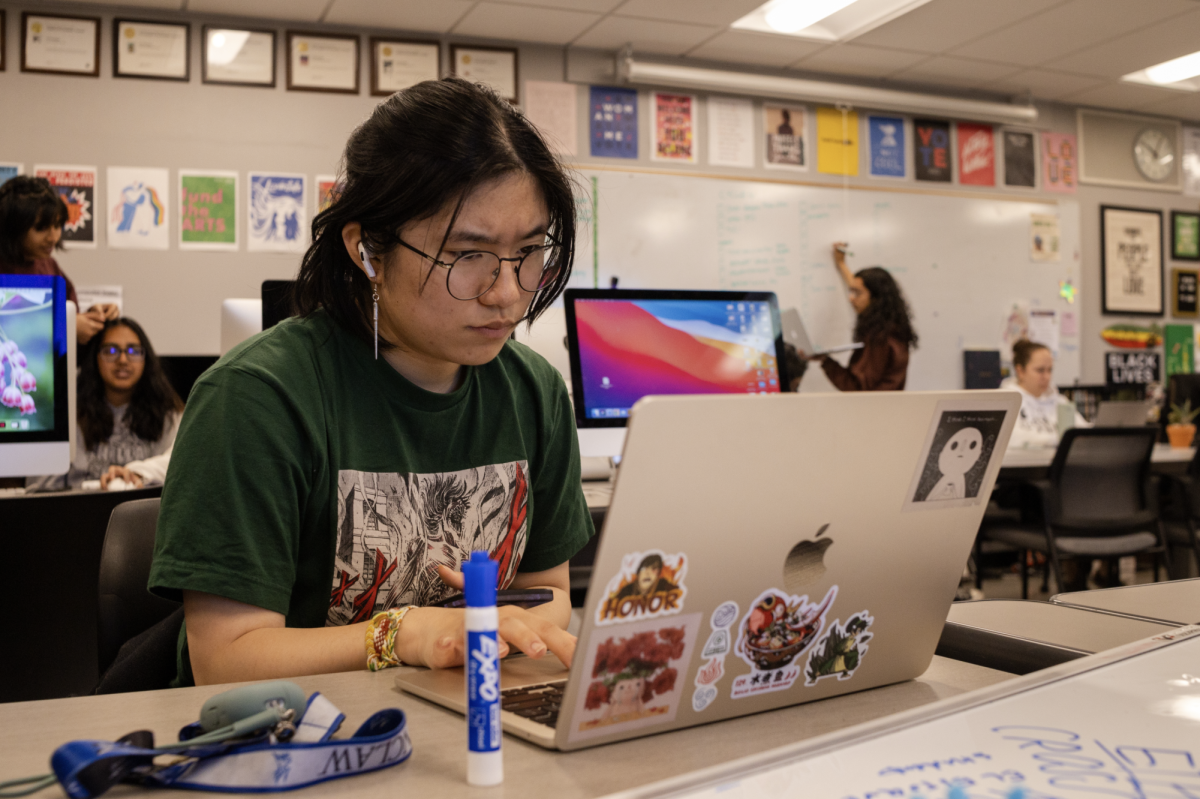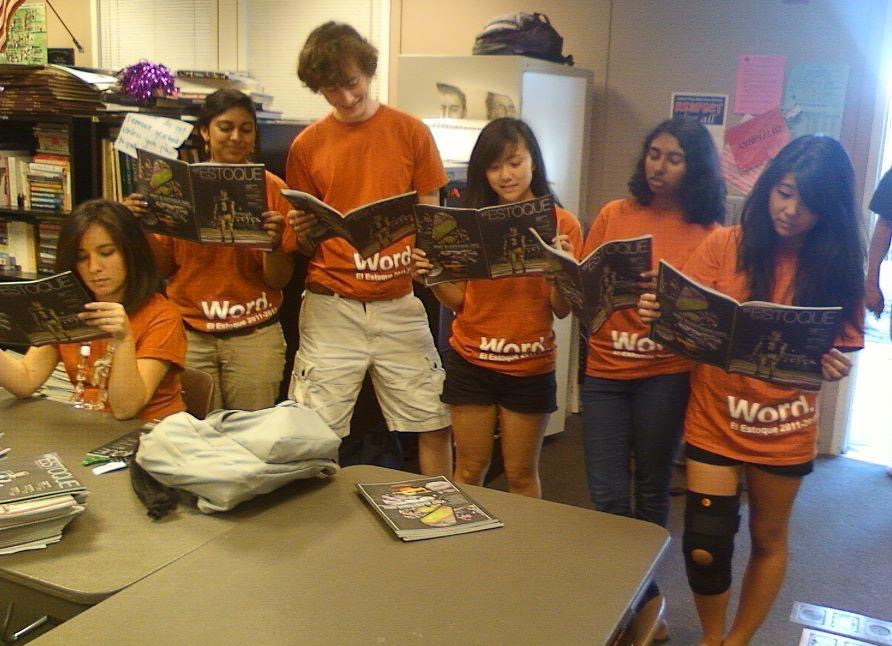The day the sky was empty
English teacher Kate Evard still remembers the night she sat outside with her husband in their backyard, looking up at the pitch-dark sky and noticing its sudden, overwhelming emptiness.

That was the day the Federal Aviation Administration grounded all flights in the Unites States. It was also the day the terrorist group Al Qaeda hijacked four airplanes, which subsequently demolished the Twin Towers in New York and damaged the Pentagon in Washington D.C. Nearly 3,000 people perished on that day: Sept. 11, 2001.
“My husband came in and told me [about the attack]. I remember waking up and being kind of dazed by the videos on TV,” Evard said. “It took a while; it was this gradual sinking in… it was all too much to grasp and conceptualize.”
Evard then took her daughters, who were one and three years old at the time, to their babysitter. The devastating grief Evard felt was not something she could share with her daughters, who, as young children, did not understand the implications of a terrorist attack.
The rest of the day found Evard in front of the TV, immersing herself in the events of the day and trying to process her anguish in the face of a national tragedy. That night, Evard and her husband gazed up at the sky and realized for the first time how desolate it was without the quotidian presence of airplanes. The memory of such barrenness in the sky is still imprinted within Evard’s consciousness.
“I will never forget how empty the sky was,” Evard said. “You don’t think about planes flying over until they don’t. It was really different — very obvious. Very dark. Very different with the sky. [My husband and I] wondered how long they would keep people out of the sky.”
What concerned Evard most about the halting of air traffic was the ramifications the absence of air transportation would have on the world. People had things they must accomplish and places they needed to go; the lack of aerial flight detained the activities of so many lives.
“It was a wide-reaching ripple that not being able to fly and get where you needed to go had [on the world], along with the death and destruction,” Evard said. “There has to be thousands of stories that we didn’t know about, like not being able to be at your mother’s bedside when she’s dying.”
Thirteen years later, the events of 9/11 still shape the lives of those who lived through the national attacks and understood the consequences. Evard now strives to refrain from going to heavily-attended events. She says that her family will spend this coming New Year’s in New York, but they will avoid being in Times Square due to the vulnerability crowds still retain in relation to large-scale attacks like 9/11 and the Boston Marathon bombing of 2013.
Evard says her daughters, who are now 14 and 16 years old, are gradually becoming more aware of the implications of 9/11. However, she remains unsure as to whether or not they, along with the rest of the students at MVHS, really understand and grasp the magnitude of the attack. And she finds that perfectly acceptable.
“I’m fine with [the younger generation] not really grasping it because I don’t know that grasping it is going to help anything,” Evard said. “The longer you can enjoy the innocence of thinking that people are good and the world is safe and enduring, the better off you are.”
The terrorist attacks have induced a perspective change on Evard’s part regarding her views on the world. In her mind, she finds it hard to comprehend the abhorrence of one group of humans to another, and the extent to which some people will go to proclaim that hatred. Occasionally Evard discusses the events of 9/11 with her daughters, and she perceives how the conversations change over time.
“My kids and I would talk about it, and as we get older the conversations will [become] different, more frank. But I don’t want them to worry about [9/11] too much,” Evard said. “I’d hate to have them worrying about something bad happening again, or when it’s going to happen. Nobody wants to walk around crazy, wondering: when is that going to happen again? What day? Will it happen?”
In the North Tower basement
For current Southern Calif. resident Ji Li, the distinctness of personal experience is still shockingly coherent.
On the morning of Sept. 11, 2001, Li, a quantitative analyst, entered the basement of the North Twin Tower and prepared to head to his office on the 38th floor. However, what he was greeted with was the scene of a multitude of people running in mass confusion.
When Li reached the basement of the North Tower between 8:30 a.m. to 9 a.m. that day, the first plane had already crashed into the North Tower. The South Tower had not yet been attacked at the time. Li exited the North Tower and ran to the subway station, but he left soon afterwards upon seeing that the station was empty. Once outside, he saw that the North Tower was burning intensely and noticed the foul odor of gasoline everywhere.
“The [North] Tower was burning wildly… I was calling my friend and right when I was calling him I heard another ‘Boom!’ sound,” Li said. “Only later did I find out from a streetside store’s TV that this was the sound of the airplane crashing into the South Tower.”
Li did not personally witness the moment when the Towers collapsed, but he remembers vividly the dust, ash and debris that smothered the streets of New York. He recollects that his colleague witnessed the collapse of the North Tower while aboard a ferry crossing the Hudson River to reach New Jersey.
“There was a lot of smoke, and dust and debris flew onto the ferry,” Li said. “From the ferry, [my colleague] could see people jumping out of the windows on the higher, trapped floors. It was sickening and horrifying.”
Because Li’s and his coworkers’ offices were on the 38th floor, most of the people Li personally knew were able to escape. After two days, the company relocated to New Jersey. Li says that his new office was right across the Hudson River from the World Trade Center, where the Towers used to stand, and as he went to work each day, he could smell the pungent odor of smoke and chemicals.
As a result of 9/11, Li says he has realized how important life and family are.
“I got married later. I realized that life is very important,” Li said. “Life is the most important thing.”

Li’s wife, Connie Chiang, was in the middle of driving to work in New York when the news of a plane crash came on over the radio. At that time, it was unclear as to whether it was an accident or not, because only one plane had crashed into the North Tower. It was only when Chiang reached her workplace that she heard, from a coworker, that the crash was a terrorist attack.
Chiang continued working that day, along with the rest of her colleagues. The only difference was that the radio was constantly on. It was only at night that Chiang watched the clips on television of the planes crashing and the smoke billowing from the Towers.
“It seemed like I was watching a movie,” Chiang said. “When I was sitting there on that seat, it was exactly like watching a movie. It didn’t feel real.”
Chiang says that because she, at that time, was not personally affected by any of the events of 9/11, she does not contain strong feelings of horror or fright in her heart. However, she is still rarely willing to open up this memory and often avoids thinking about that day.
Several years later, Li, Chiang and their one-year-old daughter moved to Newport Coast, a city in southern Calif. According to Li, for him, moving away from New York was not a direct result of the events of 9/11. Yet for some of his friends, New York no longer entailed a place of safety and living.
“One of my friends actually moved away from New York because of 9/11,” Li said. “When I went looking for him [at his house], the rental agent told me he had moved.”
Some of Li’s colleagues from New York also moved to Calif., and Li finds that the difference in perspective between his colleagues from New York and his colleagues in California is acutely prominent. He says that because of the three-hour time difference, when the planes first crashed into the Towers, many Californians were still sleeping. When they did wake up, the crashes had already occurred and what remained was the resulting pandemonium.
“Ultimately, it’s been 13 years, and many of my colleagues in California do not have a strong recollection of 9/11,” Li said. “On the other hand, my colleagues and I who moved from New York all remember this event so clearly. It’s made me realize that the world actually isn’t all that peaceful. The basic conflicts and dilemmas of people still exist.”
The interviews with Ji Li and Connie Chiang were conducted in Chinese and translated into English.





















